If you’re on the fence about seeing the Mortal Kombat reboot, I’ll just say that it’s a movie in which a man saws a vampire in half lengthwise using his special hat that has become much sharper and more durable thanks to the magic granted to him by his mystical tattoo. If that doesn’t sell it, nothing can.
Most of the early reviews that I’ve read about the new movie have been very good, but there is a small but vocal minority that seems pretty upset over the fact that the eponymous Mortal Kombat tournament that is discussed a lot during the film never actually happens. That might seem like a massive, clumsy oversight, but its actually very on brand for the franchise. In fiction the tournaments are pretty much the only system of government the fantasy world of Mortal Kombat has, and by the time the narrative begins that system of government has almost entirely gone to seed.
I’m sure you thought it was all just a fun techno-fueled punch romp. But under all that throbbing bass, Mortal Kombat is ultimately a bleak parable about the inevitability of certain breakdowns in diplomacy and how giving humans second chances only gives them another chance to make the same human mistakes born out of jingoism, mistrust of others, and a crippling fondness for tradition and familiarity that negates their most helpful instincts. Ok, sometimes instead of humans it’s half dragon princes with four arms that each shoot discreet fireballs, but you catch my meaning.
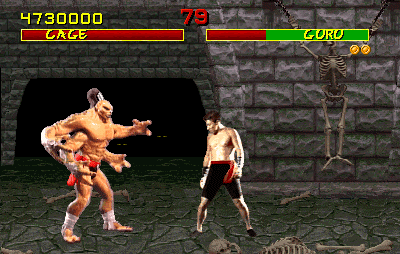
The Mortal Kombat story as told by the game series begins with a pantheon of gods slicing reality up into many pieces, with literal daggers, because the single omnipresent being who created it was becoming too powerful and they live in a world where extreme violence and time travel are the only available solutions to any given problem.
This creates a vast number of paralell universes referred to as realms that are sort of like planets in George Lucas movies in that they are mostly just single note biomes that generate whatever character the series needs at a given time.
There’s a dinosaur realm, a vampire realm, a realm with a regular human planet earth and a cool Fury Road-esque wasteland realm among others. The gods divide these universes up among themselves and for a while everything seems fine, until the residents of some of the realms invent interdimensional travel and immediately start conquering each other.
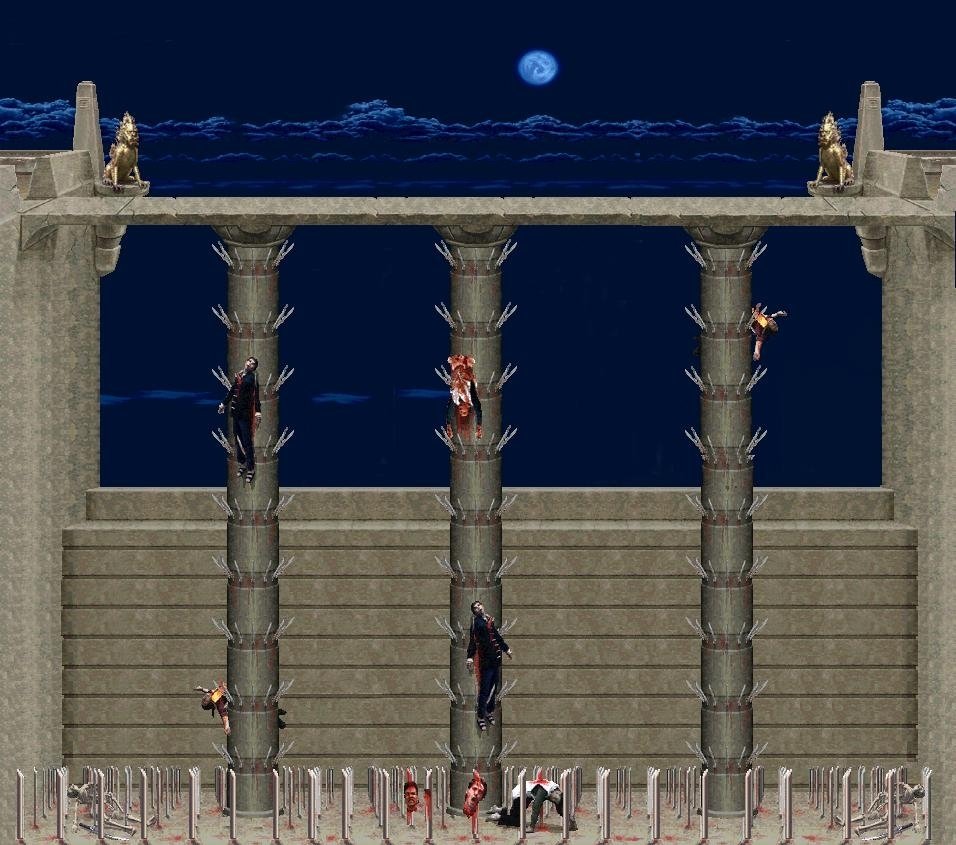
The gods are obviously upset to see this happening to the reality they just spent a fair amount of time stabbing into more manageable pieces, so they devise an intentionally slow and tedious system for interdimensional conquest that they can force the denizens of the various realms to adhere to. In short, any realm that wants to conquer another has to win 10 martial arts tournaments in a row first. Again, the only problem solving options available to these characters are time travel and violence, and a time travel contest would be a lot harder to judge.
The tournaments can only happen every 50 years, so at a minimum one realm can only conquer another every 500 years.
The logic underpinning this format is similar to the logic I heard a great deal about while studying American political science and philosophy in school. If we couldn’t make our government fair, honest or equitable, we at least managed to make it remarkably slow to action and resistant to change.
One notable flaw in this structure is that while there appears to be an exhausting amount of rules concerning the conduct of these martial arts tournaments, there are almost none in place to prevent various entities from cheating, lying and murdering when they’re not directly involved in a tournament. In fact the only non-tournament rule appears to be that the gods can’t directly interfere in any of the extracurricular murder that always seems to happen in Mortal Kombat games and movies.
A bureaucracy designed to stall rampant imperialism that is mostly toothless and enforced by an organization that easily punishes outsiders but consistently struggles to reign in its own more aggressive members? I know I’ve heard of something like that before. Ah right, it’s basically all of the global enforcement organizations and international treaties in the real world, isn’t it?
And just like news networks in the real world, the writers behind the Mortal Kombat series know that the really juicy parts of the story are never the decades of relative peace and stability these organizations bring. The interesting part is always all the explosions, dull thuds and wet splooshes that unfold as these institutions intended to maintain peace and stability inevitably fall apart.
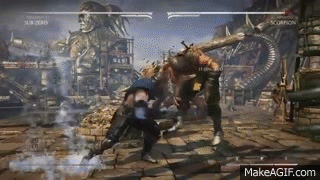
Both the 1995 movie and the original game focus on what turns out to be the penultimate tournament before the tradition is put on indefinite hold. Shao Khan, The emperor of a realm called Outworld, and his wizard lackey Shang Tsung are on something of a hot streak and need only one more tournament win to add Earth to the apparently large list of realms they’ve already conquered.
The participants defending Earth pull off a very unlikely upset and break the streak that would have lead to the complete absorption of their universe into another.
Naturally furious that the outcome wasn’t in his favor, Mitch McConnell….sorry, I meant Shang Tsung, immediately starts looking for ways to manipulate the established system so Outworld won’t need to win 10 more tournaments to get their way. When this doesn’t work, they resort to the only non-time travel solution available to Mortal Kombat characters: extreme violence. They stop participating in tournaments altogether and simply start killing as many of their enemies as they can.
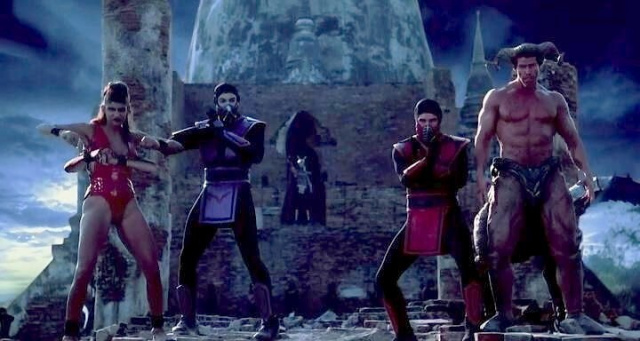
This kicks off the narrative thrust of the other 9 Mortal Kombat games and the new film, which are mostly about the horrible physical conflicts that happen in the vacuum left by the end of the tournament tradition.
Every narrative about an etiquette in decline needs at least one stubborn true believer to act as a foil to the chaos around them. A character like Ned Stark in Game of Thrones or Yoda in Star Wars who feels so certain that their long held principles will never go out of style that they do nothing to change them even as the era those principles were forged in comes to an abrupt and obvious end.
No, I’m not talking about Joe Biden. I’m talking about this fucking knob.
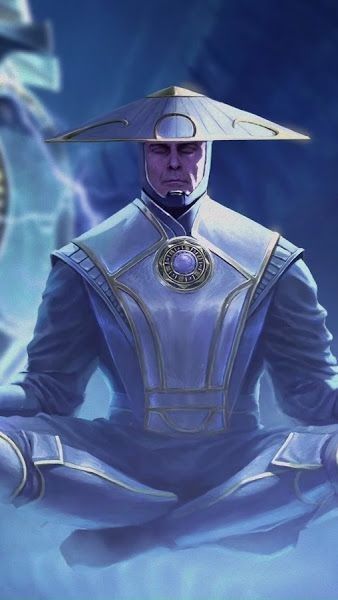
Raiden is a literal god with immense, mostly lightning related, power at his fingertips. But he consistently uses it only to enforce the rules he and his celestial peers made up that clearly aren’t working anymore. He could easily disintegrate Shao Khan with a lightning bolt, push Shang Tsung through a portal back to Outworld or forgive up to $50,000 of student debt unilaterally. But instead he chooses to watch and grumble about the rules as the many characters who put their trust in him die in horrible, awful, very cool looking ways.
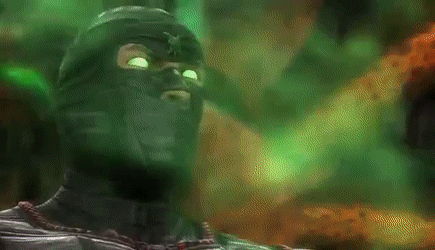
He is so wrapped up in the imaginary rules that even late in the series when Shao Khan stands over him, about to crush his head with a massive hammer, his final thoughts are not about the many poor choices that doomed his friends or how racist his hat might be depending on which actor is currently playing him, but instead about somehow saving the Mortal Kombat tournament system.
We know that because in this dire moment Raiden reveals that he has access to the only non-violent solution in the world of Mortal Kombat, time travel. And he uses it to send a message back to his younger self: “He must win.”
It’s a uselessly broad warning and a total waste of time travel by any standard, but it’s an even more baffling choice when you stop to consider that it’s coming from someone who knows the exact date, time, location and perpetrator of their own murder.
Doesn’t that information seem a bit more pressing than a vague hint about the outcome of a sporting event? It would be like if the ghost of Hamlet’s father showed up in the first act just to teach him how to win at Poker (I’ve just written that idea down, which gives me some level of protection from intellectual theft. If you steal the idea for my new original screenplay, The Gamblet, I will prosecute you to the fullest extent of the law).
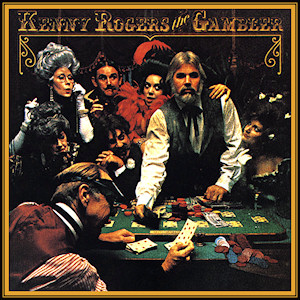
Of course this information doesn’t help younger Raiden save the Mortal Kombat tournament, in fact it makes everything much worse. In the new timeline created by Raiden’s baffling message, the tournament format is abandoned even more quickly, and in the ensuing chaos even more of his beloved human protagonists die. Raiden slowly degrades his personal capital until even in fiction the other protagonists start to see him less as a wise and powerful mentor and more of a bumbling and ineffectual rules wienie who is probably going to lose them the Midterms.
I’m obviously drawing some connections to the real world here that the creators of Mortal Kombat never intended, but I do think it’s interesting how often the failures of governmental systems and processes we dream up run paralell to the gratuities and failures of government in our own reality, even when we don’t intend them to.
It probably has something to do with pent up frustrations about the state of things working their way into even the silliest of fiction, but it might also be because our many historical failures to collaborate as a species and make something better for younger generations are an old familiar song we all know the words to. Greed, ignorance and indifference mess things up so often and so spectacularly that it’s difficult to even imagine a world where they don’t that still feels realistic.

